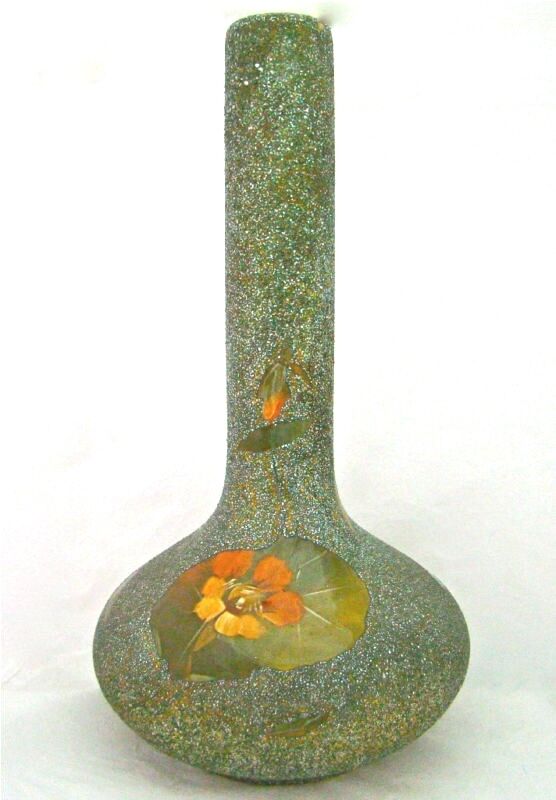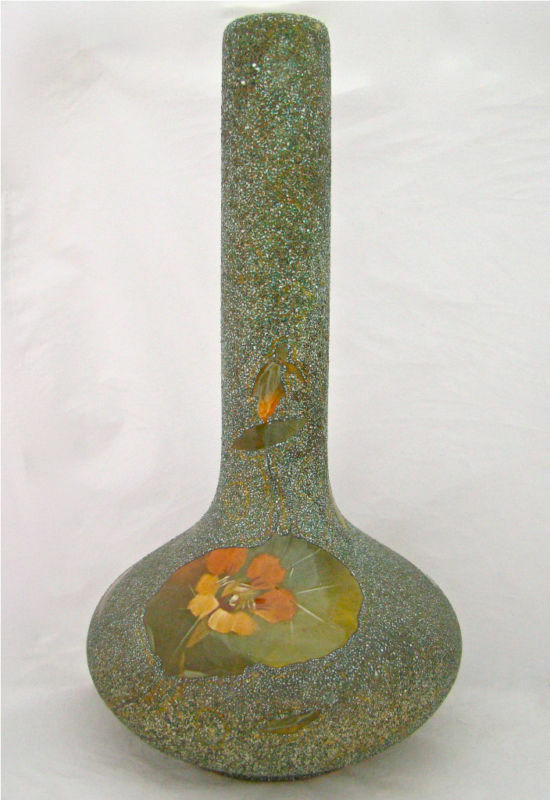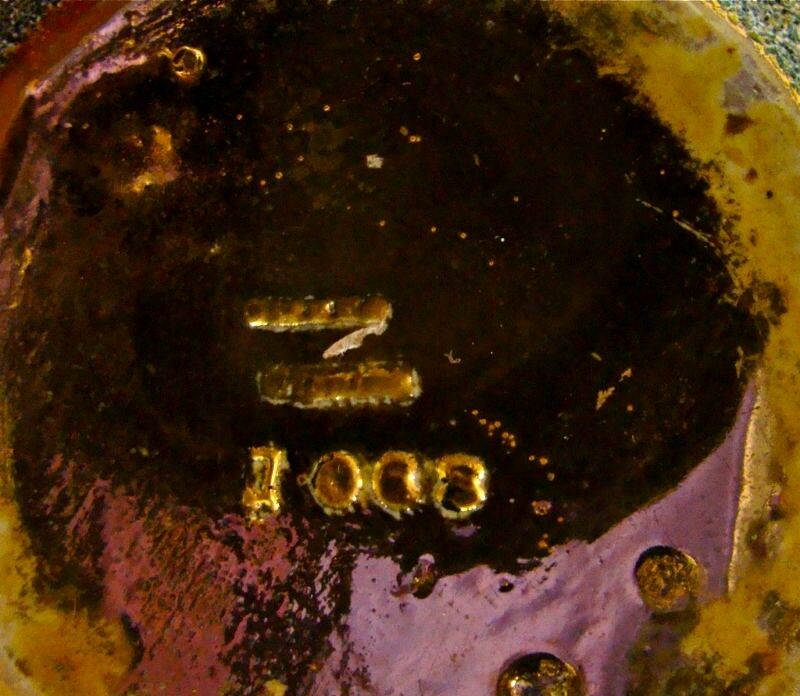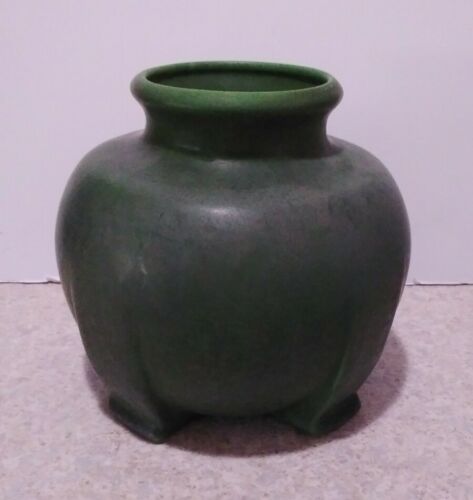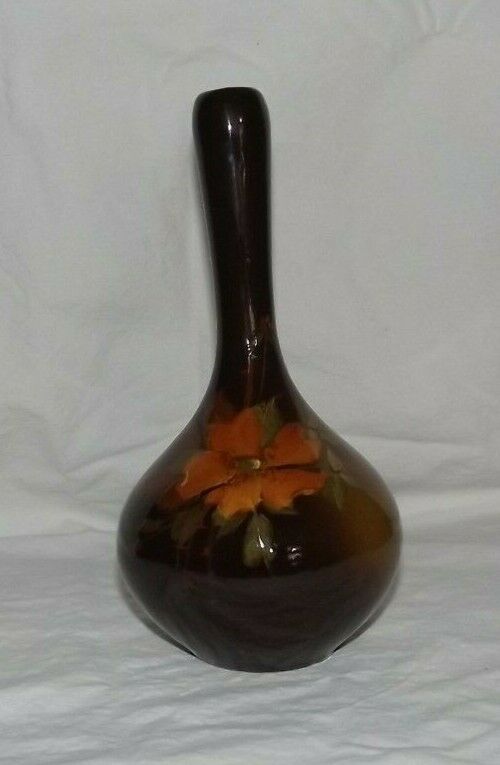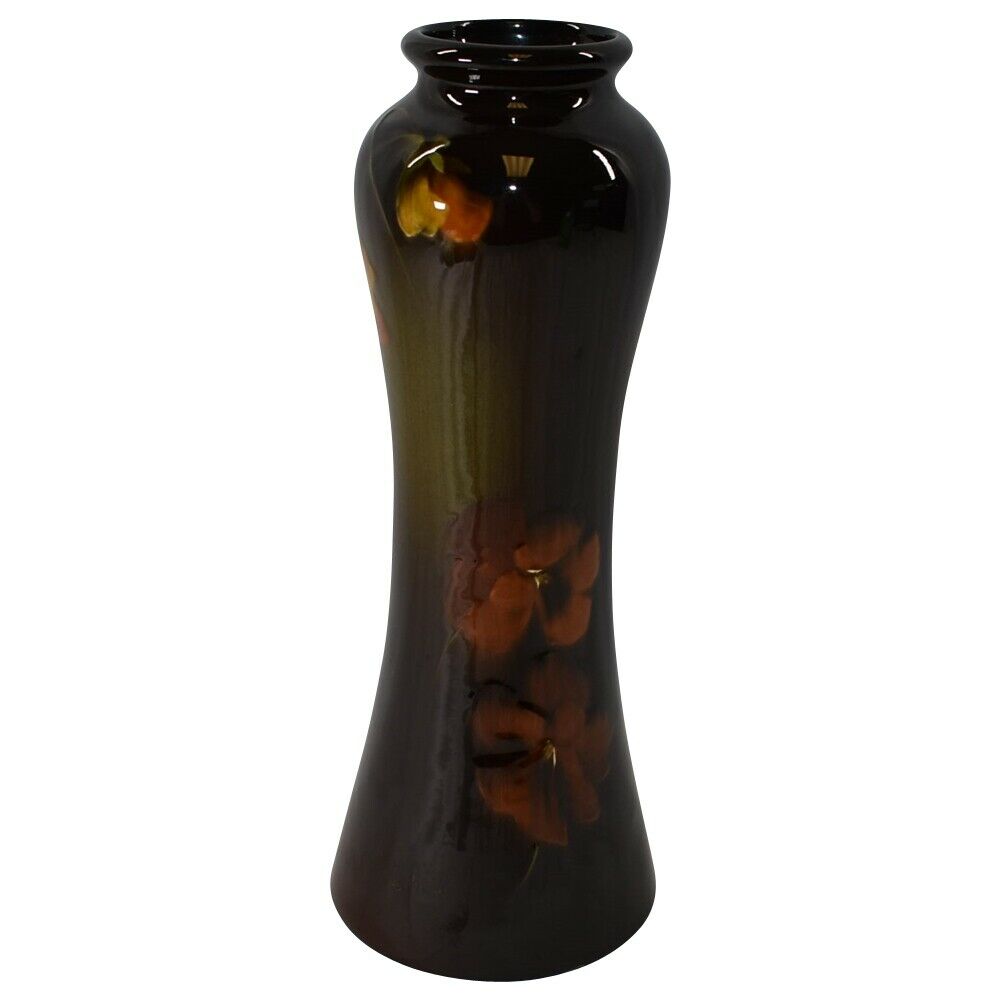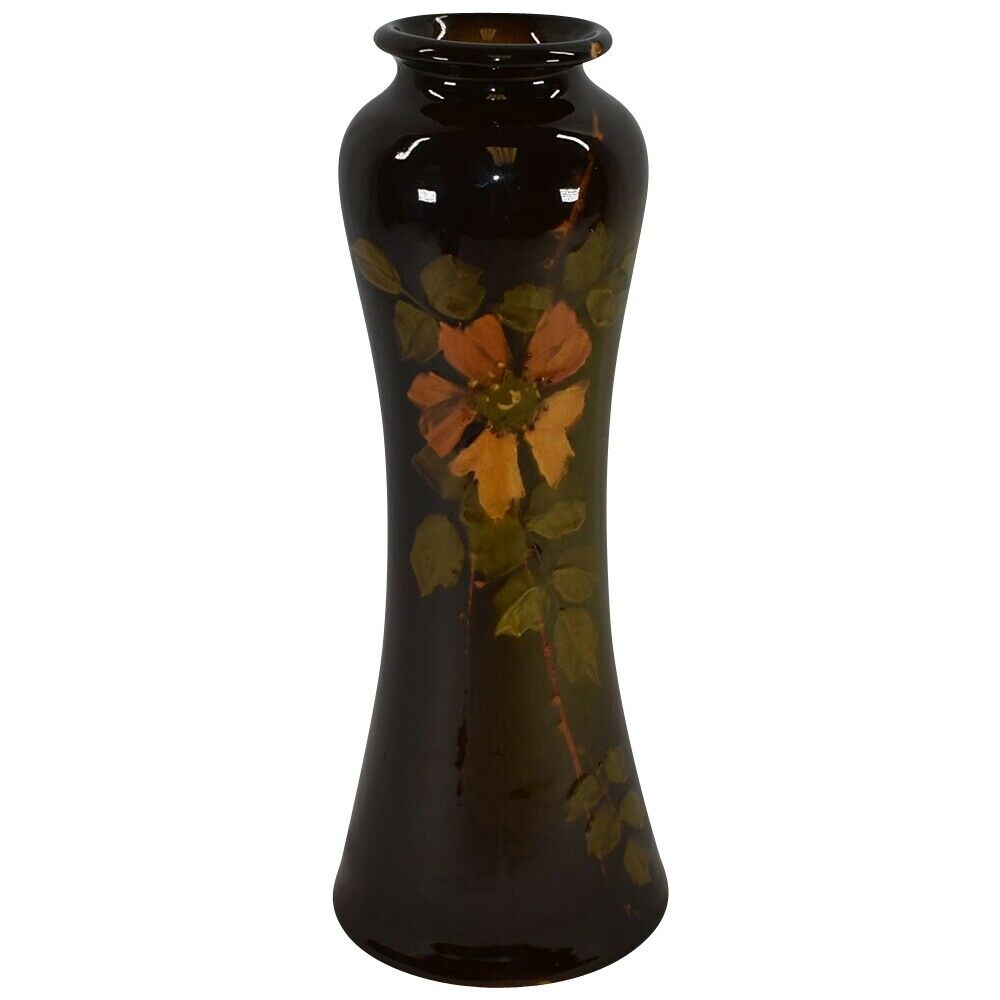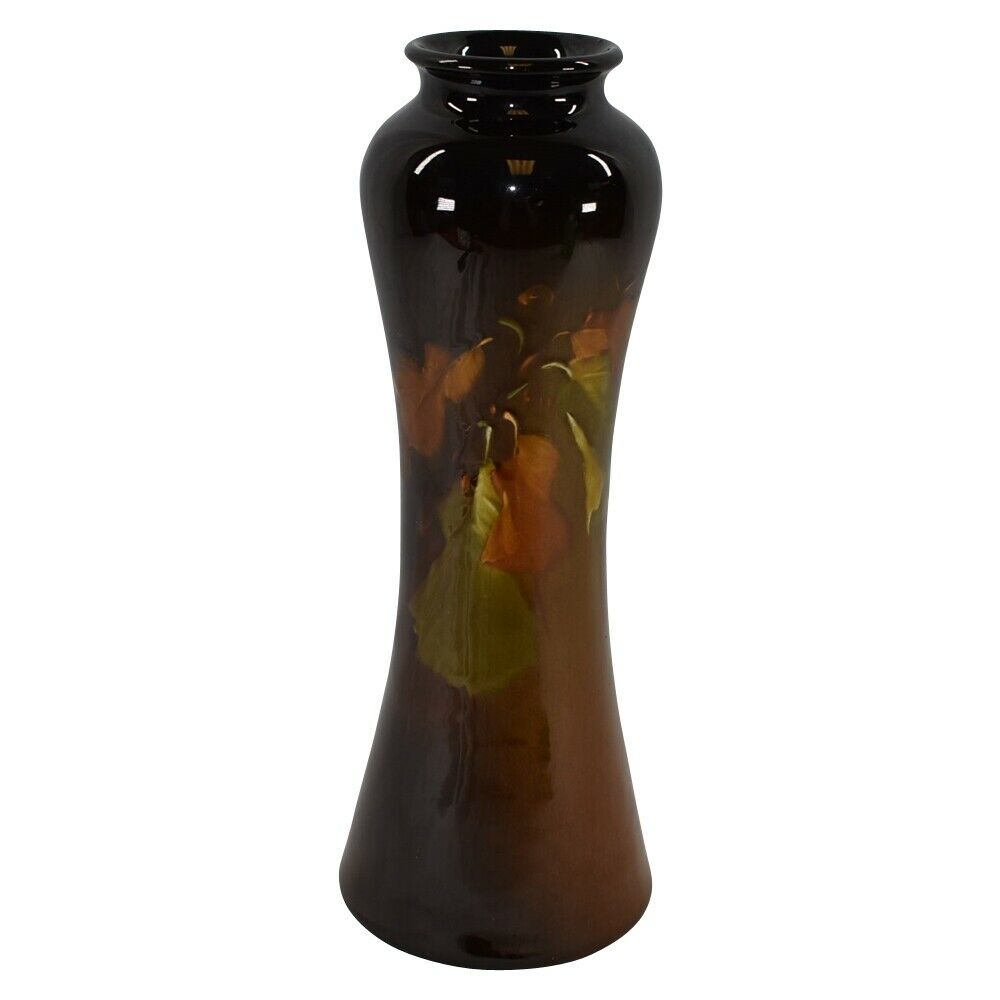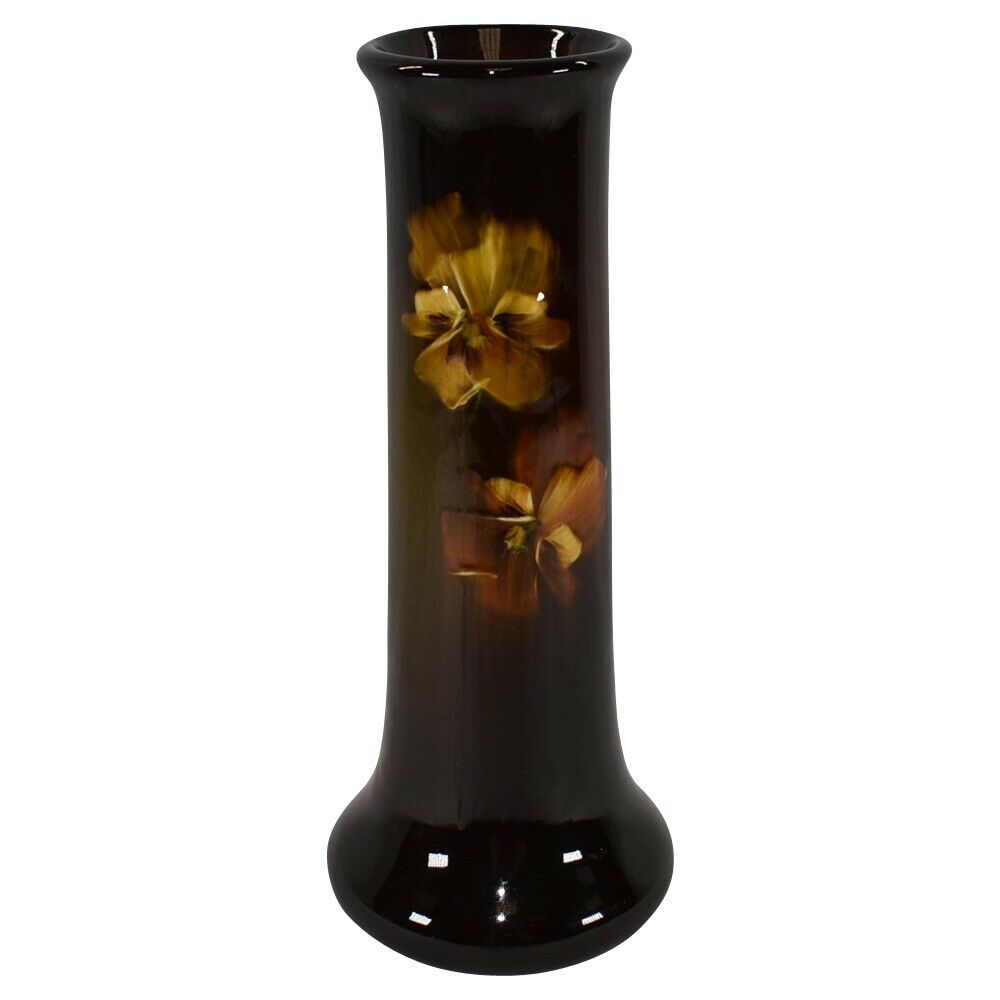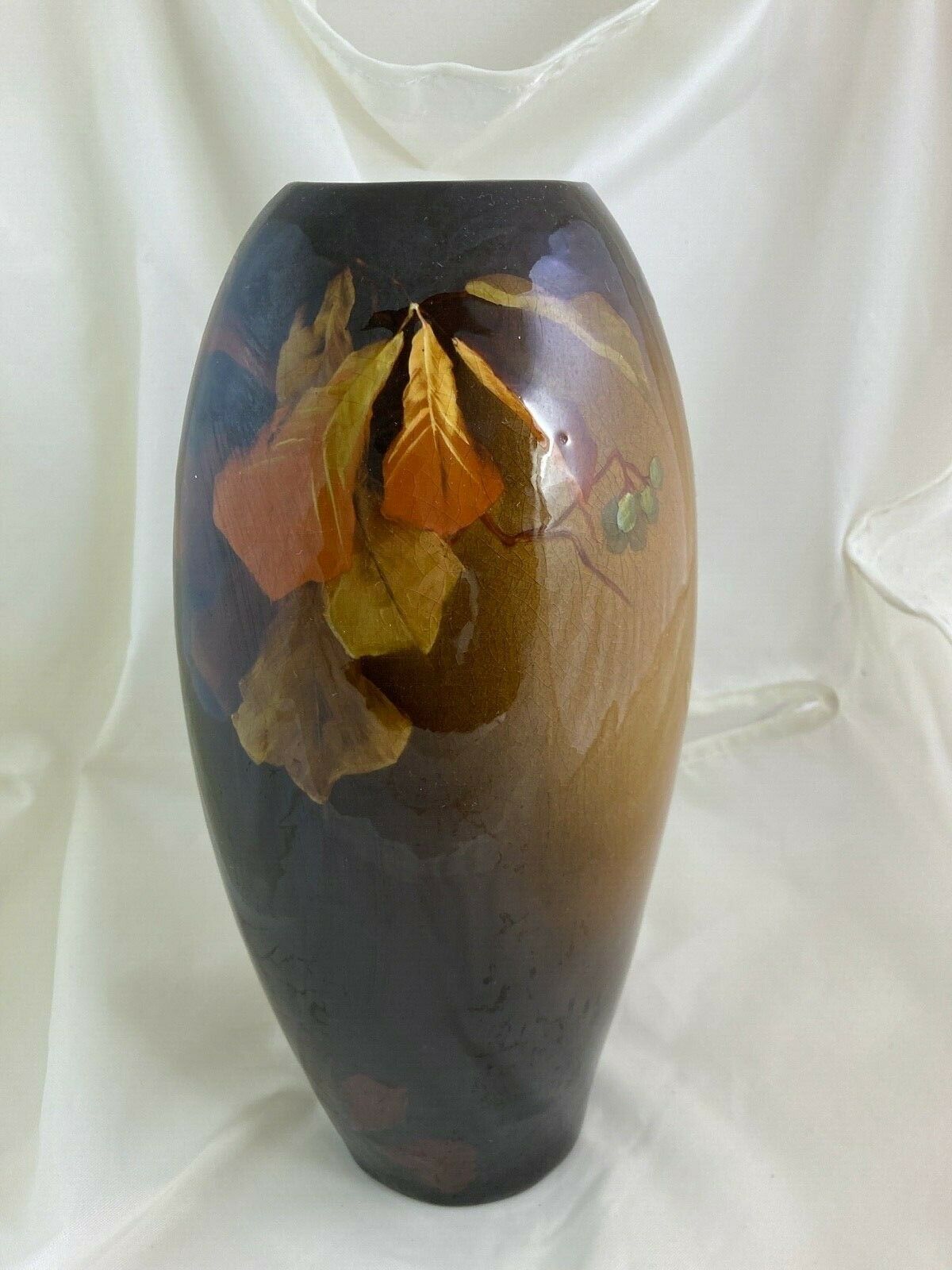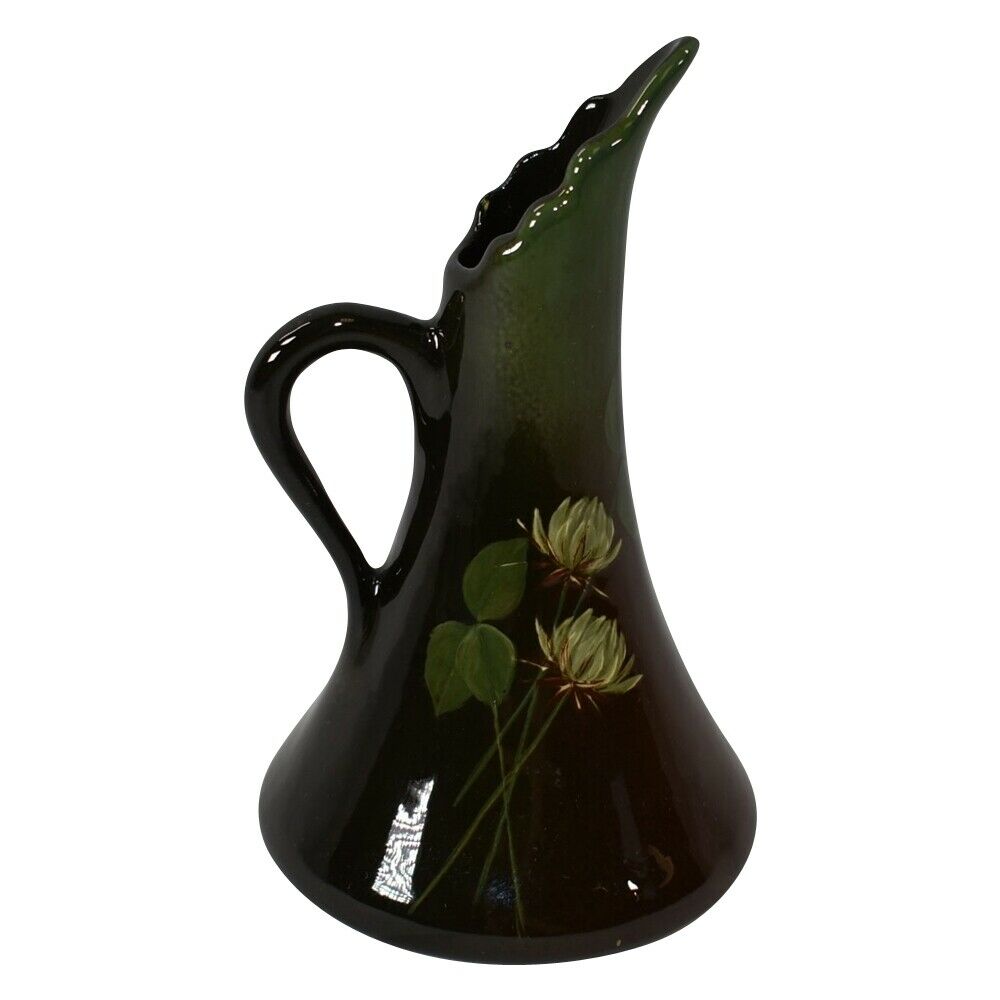-40%
JB OWENS MKed 13" NASTURIUMS MALACHITE OPALESCE UTOPIAN
$ 232.32
- Description
- Size Guide
Description
J. B. Owens Pottery MALACHITE OPALESCE UTOPIAN 13” "NASTURIUMS & LEAVES" TAPERED VASECincinnati
is proud to offer a
J. B. Owens Pottery MALACHITE OPALESCE UTOPIAN Marked 13
" Tapered Vase
, Marked Owens Utopian 1068, circa 1905.
Offered with
NO
BIDDER o
r
BUYER PREMIUMS.
Lay-A-Ways
AVAILABLE up to FOUR MONTHS
!
The Opalesce Utopian designed 13" tapered vase with nasturiums design is a very desirable piece of art pottery. This old J. B. Owens vase is in wonderful condition with outstanding colours in the decoration and with a high degree of SHARP mold detail.
The opalesce Utopian color process was a premium decorating process in 1905. The ware was coated with gold and overlaid with small coraline beads except the areas which has an underglaze slip decoration. The slip decoations in six areas has the characteristics of the Utopian line. Pieces of this line which has green beads, like the vase being offered, are designated as Malachite(green) Opalesce Utopian. The line is shown in Frank Hahn's book
Collector's Guide to Owens Pottery
on pages 86 and 87. The vase mold is shown on page 81 in
McKibben/Soffit's book on J. B. Owens Pottery
The vase
is an outstanding example of a designed J. B. Owens very rare vase made in Zanesville, Ohio back in the 1905.
The Utopian process itself is very similar to the Weller Louwelsa process of decorating.
The
vase stands 13" tall, and 6 3/4" wide in the wide bottom section. The line is shown in Frank Hahn's and McKibben/Soffit's books on J. B. Owens Pottery. The vase has NO hairlines, NO cracks, NO fleabites and in wonderful original condition. Please see the above pictures to view this vase and the "Owens Utopian "1068"
base marks. Please plan to add .95 for double box shipping in the USA.
Many artists were fortunate to work for both Owens, Roseville and Weller during their fine careers in Zanesville, Ohio back at the turn of the century.
All items purchased come with our complete satisfaction guarantee. If you are unhappy with your purchase for any reason, just contact us within 3 calendar days of receiving the item. In order to receive a refund, the item must be returned in the SAME condition it was received. Returned items must be received by us within 3 days of the original receipt of purchase.
In the unlikely event damage or repair was missed on an item, all shipping charges will be included in your refund. Shipping charges are not refundable on pieces returned for crazing and other minor factory flaws such as surface scratches, glaze skips, grinding marks, kiln flaws, and stilt pulls. If any such factory conditions exist, and in our opinion are objectionable, they will be noted in the item description.
The J. B.Owens’ company entered the art pottery field in 1896. His first product was the “Utopian” ware which was similar to Weller’s “Louwelsa, Rookwood’s” standard brown ware, and George Young’s brown “Rozane” ware. During the decade he made art pottery, many of the now famous names in the American art pottery history were at some point associated with Owens Pottery. These names include W. A. Long, Frank Ferrell, Karl Langenbeck, John J. Herold, Herb Hugo, Albert Radford, and John Lessell and Guido Howorth from Austria-Hungary. Frank Ferrel came to Owens Pottery about 1907, and then later became designer for Roseville Pottery. These men were but few of the experts that were employed by the Owens factory. It is believed that between 1896 and 1907, Owens Pottery produced over 48 distinct art pottery lines and created more new lines during this period than any of the firm's competitors.
Most Owens Pottery was marked. Often marings included a shape number. Several different marks were used and much of the art pottery was signed by the artist. In addition the names of the various lines were often found impressed with or without the Owens Pottery mark. The Owensart mark was adopted in 1906. Sometimes trial pieces bear process marks whose meanings are largely unknown today. Because of the movement of individual designers and decorators among the various Zanesville art potteries and their offshoots, it is almost impossible to attribute unmarked artware to a specific manufacturer. It should be noted that there are a number unique shapes which can be identified as Owens Pottery even though unmarked.
In 1904 the Owens Pottery Co. issued a forty-page catalog, said to be the largest ever issued by an American pottery. It was 14x20 inches and contained eight hundred items. He duplicated every line made by his competitors and also created new ones. Some of these lines were expensive to make; and others so nearly copied products of other potteries, it was hard to market them. Outlets for Owens’ pottery were established in New York, Chicago, and Philadelphia. Large shipments were also sent to foreign countries, as far as Australia, the West Indies, and Brazil. Owens stopped making art pottery about 1907 or 1908 and turned to the manufacturing of commercial tile. During his years in the art-pottery business he had won four gold medals and a grand prize (at the Lewis and Clark Exposition in Portland, Oregon, in 1905). He managed to get along quite well until his factory burned in 1928. According to Owens, only East Liverpool, Ohio, and Trenton, New Jersey, outranked Zanesville as pottery centers in the country. Against the advice of several businessmen, he rebuilt the factory at the beginning of the 1929 depression resulting in the loss of all his properties. He moved to Homestead, Florida where he remained until his death in 1934.
T
hank you for bidding on our art pottery items!
(WL1667-024)
Click below to...
View other CINCINNATI auctions
Click below to view...
View other CINCINNATI auctions
Offered with
NO
BIDDER o
r
BUYER PREMIUMS.
Lay
-
A
-
Ways
AVAILABLE
!
